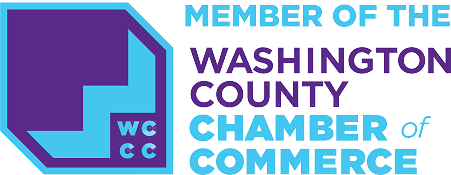What Could a Reverse Mortgage do for You?
What Could a Reverse Mortgage do for You?
Consider the reverse mortgage scenarios below. Do the clients remind you of anyone you know?
Scenario 1:
- Craig Jenkins, age 82, and Sylvia Jenkins, age 79 (reverse mortgages are calculated using the age of the youngest homeowner.)
- Home Value – $375,000
- Home Equity – $375,000
- No mortgage
The Challenge:
Craig and Sylvia both take medication to stay in good health. The cost of monthly meds and treatments makes it difficult for them to find the money needed to maintain the quality of life they once enjoyed. Their monthly income consists of social security and Craig’s small pension from his former employer. They are concerned about rising costs and they don’t want to be forced to choose to purchase their medication or cut back on other necessities like groceries and utilities. What can Craig and Sylvia do to alleviate some of this pressure?
The Solution:
They take out a reverse mortgage with the option of one lump sum or a monthly income. The extra cash flow from their reverse mortgage more than covers their monthly cost for medication and allows Craig and Sylvia more freedom with much less stress. They can also now afford to make much-needed updates to their home which could increase their home value.
Scenario 2:
- Martha Gibbens, age 65
- Home Value – $500,000
- Home Equity – $375,000
- Mortgage balance of $125,000
The Challenge:
Martha is still working full time but she desperately wants to cut back her hours to part-time in preparation to retire. She would love to enjoy her golden years and be able to spend more time with her grandchildren and volunteer with the local animal shelter. Her monthly mortgage payment puts a significant dent in her budget and with inflation, she is finding it increasingly harder to make ends meet. Her monthly income consists of her full-time employment as she is delaying taking social security to increase her benefit amount. She is concerned that if she cuts back her hours at work, she won’t be able to make her mortgage payment, let alone afford anything else. If she can put off taking social security for just a few more years, her benefit will increase significantly. What could Martha do to allow her to meet her goals now?
The Solution:
A reverse mortgage would pay off Martha’s mortgage balance and allow her some additional cash reserves in a line of credit that can grow over time. Martha would no longer have any monthly mortgage payments to make and her heirs would have the protection of a non-recourse loan that her traditional mortgage did not provide. The financial security net the line of credit offers gives Martha the peace of mind that she has a lump sum of cash she can access at any time, for anything. Now that Martha no longer has a monthly mortgage payment to make, she can reduce her hours at work so she can put her time into the things she loves while still delaying social security payments until she is ready.
Scenario 3:
- Cindy and Arthur Williams, aged 62 and 64
- Home Value – $650,000
- Home Equity – $500,000
- Mortgage balance of $150,000
The Challenge:
Cindy and Arthur planned well for retirement. They have significant assets in their retirement funds, they have long-term care insurance and their assets have been placed in a trust. They both worked full-time until recently when Cindy started having health complications. Cindy was forced to take leave from her employment and Arthur took a significant cut to his hours so he could focus on taking care of Cindy through this time. Their health insurance is through Cindy’s employer and if she is unable to go back to work, there are concerns they will lose their coverage. They are in the process of accessing funds from their short-term disability coverage and long-term care insurance but there are concerns that Cindy’s needs don’t qualify for the insurance with her current diagnosis and care needs. Their mortgage payment is coming due, they have a deductible to meet with the health insurance, and the medication and support costs Cindy now needs are adding up quickly. Their savings aren’t going to last forever with these additional unforeseen costs and they aren’t old enough to access their retirement funds. What could they do to access additional cash now without any additional financial burden?
The Solution:
A reverse mortgage would pay off their mortgage balance and allow them some additional cash reserves in a line of credit that can grow over time. Cindy and Arthur would no longer have any monthly mortgage payments to make which would free up the cash that once went to pay down that loan. The additional funds in the line of credit offer them an additional stream of cash to cover any new surprise expenses. Without a monthly mortgage payment squeezing their budget, they can now afford their expenses, and for Arthur to cut back his hours at work without the looming threat of missing a mortgage payment and being put into foreclosure. This also alleviates the stress of waiting on the other funds to come through from their various insurance policies.








